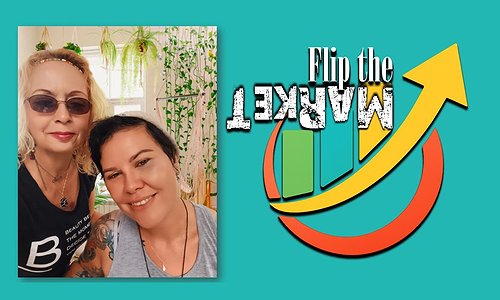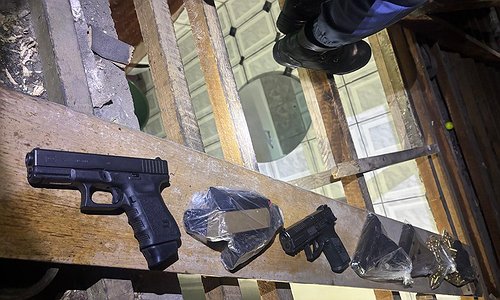Dutch citizens show solidarity with the victims of farm attacks in South Africa
Many white South African farmers will agree that their complaints to government, about being vulnerable where violent crimes are concerned, are being ignored by the ruling party, and as such, many also believe this is indicative of racism. According to one group, criminals regard farms as an easy target due to their remote locations.
According to the April 2018 statistics released by the Rome Research Institute of South Africa (NGO nr 2013/034937/08), 37 attacks - which resulted in four murders - were executed on farms in South Africa, with numerous of the non-fatal attacks being extremely violent, resulting in horrific injuries. Unfortunately, the statistics for the month of May were not yet available at the time of going online, but fatalities have been reported throughout the month.
Although it is factually true that the victims are predominantly white farmers, the genocide and attacks are not only directed at whites, but at other race groups as well.
The following had been reported on Wikipedia:
“Between 1994 and March 2012, there had been 361,015 murders in all of South Africa and, between 1990 and March 2012, there had been an estimated 1,544 murders on South African farms of which 208 of the victims were black. The data on farm attacks is self-reported to a commercial farmer's organisation, Transvaal Agricultural Union. The last government analysis of farm-attack victims by race was conducted in 2001. In their 2001 report, the police’s Crime Information Analysis Centre stated that, of the 1,398 people attacked on farms, 61.6% were white, 33.3% were black, 4.4% were Asian and 0.7% were listed as “other”, with murders on farms in 2007 accounting for 0.6% of the national total. Racial statistics around crime are no longer collected by the South African government. In January 2015, AfriForum reported that there had been an increase in farm attacks and murders in the previous five years.”
On Sunday, approximately 70 activists in Den Haag, Netherlands, showed their solidarity with farmers and the victims of farm attacks, when they took part in an organised march under the banner of “Demostratie voor de Afrikaner”, loosely translated as “Demonstration for the Afrikaner”. Their Facebook Page is called "Comité voor de Afrikaner".
The march commenced at the South African Embassy and wound its way up to the Central Station where a number of speakers addressed the crowd. Among the marchers were former South African citizens, some of whom had been victims of farm attacks themselves, such as Arine Prins and her family. The murder of her husband, Peet van Es, just outside Barberton on April 7 last year, shook the community of this small town in Mpumalanga to its core. (View video footage here).
After one of the organisers of the march, Ruben Rosiers, had presented his opening speech, Arine Prins took to the podium. In her address, she recounted the horrors of the day that forever changed her life and the lives of her two children - her son, Beer (25) and daughter, Sterre (22). Other speakers included Belgian Jan Sempels and his expat-wife, Martie Sempels, a South African who was born in the Free State. In a touching speech, in which she also addressed Prins, Sempels said she did not wish the ordeal they (Peet van Es’ family) went through on any man and apologised to Prins that this had happened in her country.
A part of Marco Sciberras’ speech, also an organiser, read as follows:
“In a country in which Afrikaners make up less than 15% of the population, the communality of these attacks can no longer be attributed to pure coincidence or a few ‘rotten’ individuals.
Rather, they are indicative of two things.
Firstly, they further shed light on the already blatant extent of the ineptitude, disorganization and corruption which has been allowed to prevail within that country over the past two decades. It shows how a state, once praised by the Western media for its potential, is no longer capable nor willing to enforce the rule of law across its country and has instead become content with mediocrity and lawlessness.
Secondly, these attacks are representative of the total disdain for the Afrikaner people, their culture, and their way of life exhibited by the South African Government and its neoliberal backers. Each day, it becomes ever clearer that the state and the ruling ANC party do not operate on the principles of ‘justice and equality’ they claimed to adhere to in the years following Apartheid."
Below is video footage of Sciberras’ speech: (Credit: Lee Engelbrecht)
Africa InTouch News also conducted a telephone interview with Sciberras. According to him, they had initially arranged the march in protest to the escalating rate of violent attacks on Afrikaner farmers across the country. However, the current issue of the expropriation of land without compensation that is currently receiving huge international attention, also formed part and parcel of the day’s proceedings.
Sciberras describes what the day was about in the following voice note:
Here are some of the comments - mostly in Afrikaans - which South Africans posted on the Facebook timeline of "Comité voor de Afrikaner":
• Julle is pragtig en word waardeer deur ons almal. - Johannes C Coetzee
• Baie dankie. Jul hulp en bystand word opreg waardeer. - Johan Roets
• Hartlike dank en waardering. Dis hoogtyd dat die tragiese waarheid bekend raak! Die ANC steun hierdie moorde met stilswye. - Louise VanHuyssteen Meganck
• Dankie vir jul ondersteuning van die Afrikaner volk in Suid-Afrika. - Kobus du Plessis
• Thank you from the Cape Party. Please support our bid for Sovereign Independence of the Cape. - Gavin Wilkins
Written by: Anchen Coetzee for Ama'Zone Media Solutions t/a Africa InTouch News
Subeditor: Lynette Brink



